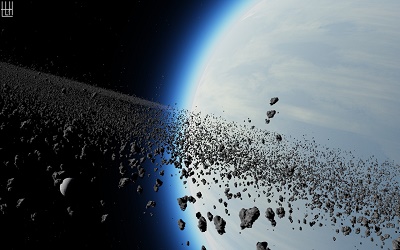PTE考生目前最大的问题之一就是练习题缺乏。除了有限的基本官方书(PLUS,Testbuilder, OG)之外,就没有题了。很多英语基础不是很扎实的同学很难找到练习材料。墨尔本文波雅思PTE培训学校专门为墨尔本,悉尼PTE考生准备了适合PTE听力阅读练习的科学60秒。各位PTE同学可以练习PTE听力中的summarise spoken text和PTE口语中的retell lecture,练习记笔记技巧和复述。废话少说,下面开始:
60秒科学:Faraway Planets May Be Far Better for Life
听力内容:
60秒科学节目(SSS)是科学美国人网站的一套广播栏目,英文名称:Scientific American – 60 Second Science,节目内容以科学报道为主,节目仅一分钟的时间,主要对当今的科学技术新发展作以简明、通俗的介绍,对于科学的发展如何影响人们的生活环境、健康状况及科学技术,提供了大量简明易懂的阐释。
Earth is the only place where we know for sure that life exists. We have liquid water and a strong magnetic field that shields out harmful cosmic radiation.
But what if Earth isn’t the most habitable type of planet? Researchers say they’ve listed the qualities that would make a planet extra-friendly to life, or “superhabitable.” Their paper is in the journal Astrobiology. [René Heller and John Armstrong, Superhabitable Worlds]
A “superhabitable” planet should be two or three times the size of Earth. The extra surface area provides more room for species to spread out and evolve. And the stronger gravity of a giant-Earth would flatten the surface, allowing for more lakes and archipelagos—crucibles of life here.
Our “superhabitable” planet should also be well-aged. The sun and earth are about five billion years old—middle aged, cosmically speaking. But some stars that are slightly smaller and dimmer than our sun are more than 10 billion years old. That’s a lot of extra time for life to take hold and evolve.
Astronomers estimate that our Milky Way galaxy is home to around 100 billion planets. Compared with planets yet to be found, Earth could barely be making a living.
—Michael Moyer





